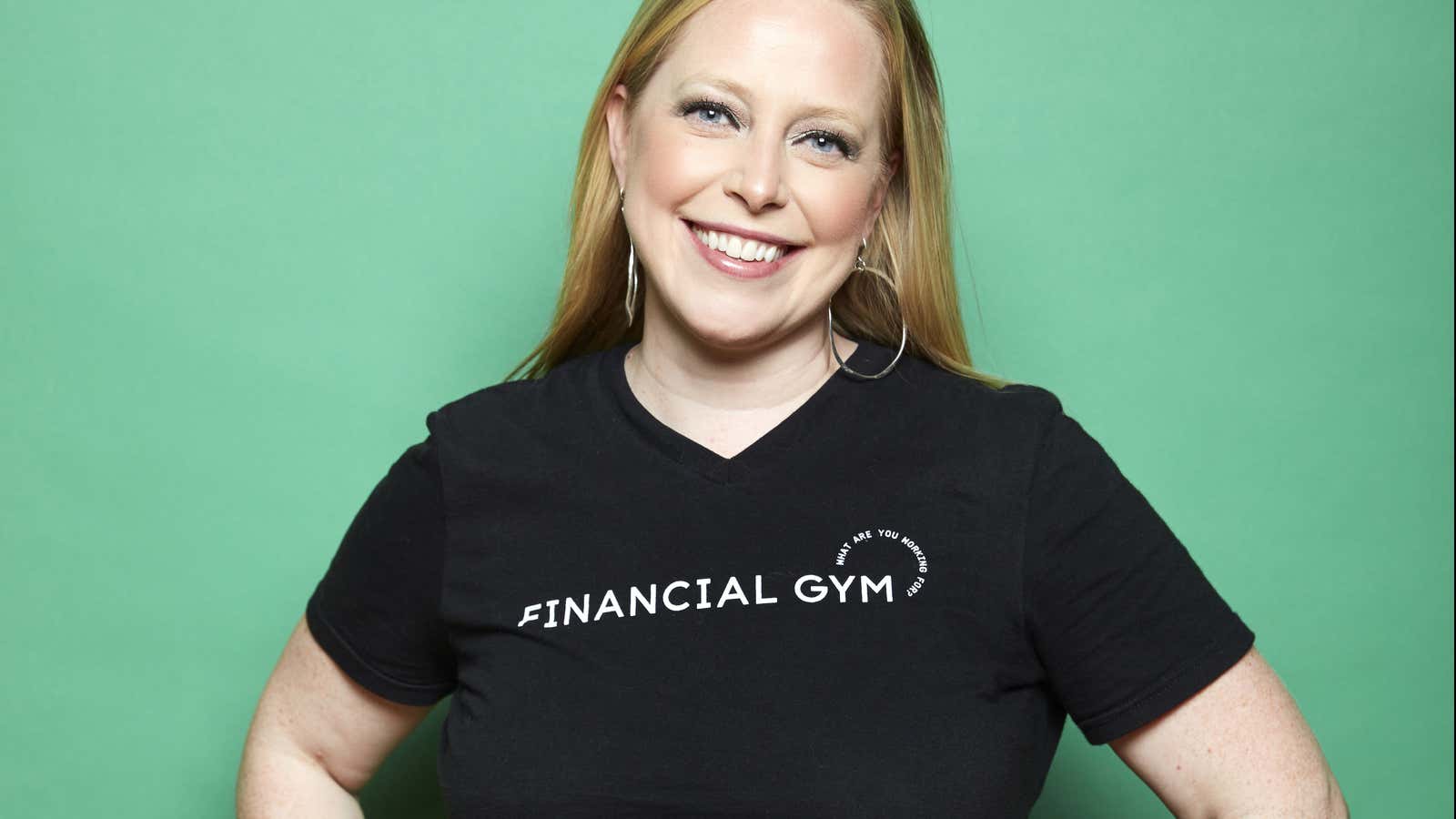Shannon McLay spent eight years working on trading floors. She has a business degree and her credit score was good. But when it came time to buy a house, she realized she had some serious blind spots. “Someone told me I should invest the money I was saving for the down payment in ETFs, and I didn’t know what they were. I couldn’t believe it,” McLay tells Quartz. (ETFs are exchange-traded funds, groups of investment funds traded on stock exchanges.)
Even more disturbing: McLay quickly realized she wasn’t alone. When she then started working as a financial advisor, she noticed that a lot of women didn’t understand some of the financial terms she was telling them even though they had been working with professional advisors for years. “When I started meeting with pro bono clients who had no access to financial advisors, they knew even less about what was going on with their money,” she says. She didn’t like what she saw. “I don’t like to see that women are behind the eight ball where financial health is concerned.”
When she founded Financial Gym, a company that offers financial advice to clients with less than $250,000, in 2013, McLay started to understand just how fraught women’s relationship can be with money. “There is a lot of fear and shame women are feeling around their money,” McLay says. She suspects that’s in part because she believes many women just don’t feel a connection to their money the way many men do. “When I was starting in this business, a colleague told me I should read Think and Grow Rich by Napoleon Hill. The idea of growing rich didn’t connect with me—I didn’t start this business to get rich. I started it because I saw a need,” McLay says.
And the jargon that acts as a barrier of entry into the financial world can be particularly off-putting to women. “It goes back to feeling our own insecurities or shame. Women have this idea that if we don’t totally understand something, we shouldn’t talk about it. We’re bad at bullshitting,” McLay says. “Guys aren’t better at the jargon, but they’re more comfortable repeating it without understanding it.”
For women who feel uncomfortable, it’s easier just to pass the money stuff off to someone else. You might expect that, since millennial and Gen X women are working and earning more than their mothers or grandmothers, they would be more eager to take financial control, but instead, that same survey found the opposite was true: a survey found that 59% of women 20-34 and 35-50 allowed their partners to control the finances (that number was 55% for women over 50).
That can be detrimental for them in the long run. “It’s just like regular literacy—it’s so important we understand it, or we get taken advantage of,” McLay says. “The more financially literate you are, the more informed the choices you make. Do I need a Roth IRA? If you don’t know what it is, you don’t know how it applies to you.”
In the past decade, companies specifically intended to help women get a handle on their finances, such as LearnVest, Women & Money, and Basis, have sprung up. The companies’ success indicates that there’s a demand. Financial Gym is part of this new trend of financial literacy companies that meet clients where they’re at; though she didn’t expressly set out to help women, McLay has found a strong base of female customers. Women tend to be the ones to drag their male partners in for an appointment, she says: “Men don’t stop and ask for directions, and they don’t ask for financial help.”
And she’s got some advice for women based on the most successful behavior she’s seen:
1. Learn the jargon. Complex terms can be a major barrier for understanding the world of money, McLay says. But that jargon has been the same for decades now, and it’s worth learning. “Yes, it’s committing to [learning] another language. But you need it to succeed in your life,” she says. There are lots of resources out there that can help you learn in the style that works best for you, including books, blogs, and podcasts.
2. Don’t be afraid to look dumb. Lots of McLay’s clients feel ashamed when they don’t know something. “Why? Where would you have learned it?” McLay asks. “You have to drop that. You have to not be afraid of looking dumb because you don’t know. Anyone with an advisor, ask them to explain things to you like you’re a three-year-old. Who cares if you sit there and look dumb? It’s your money, and it should empower you, not confuse you.”
3. Know your worth, and don’t be afraid to fight for it. “This is the number one issue we see at the Gym—the gender pay gap. It’s glaring. We see it in the financial pictures,” McLay says. When she tells women they’re under-earning (they see enough financial profiles of men and women in various industries to know the difference), women tend to say, “’I don’t want to rock the boat.’ There’s always a storyline for why they won’t negotiate at their job. Men mostly don’t have that hangup,” McLay says. Fighting through that urge to always keep the peace can mean much bigger earnings in the long run.
This story is part of How We’ll Win in 2019, a year-long exploration of the fight for gender equality. Read more stories here.
